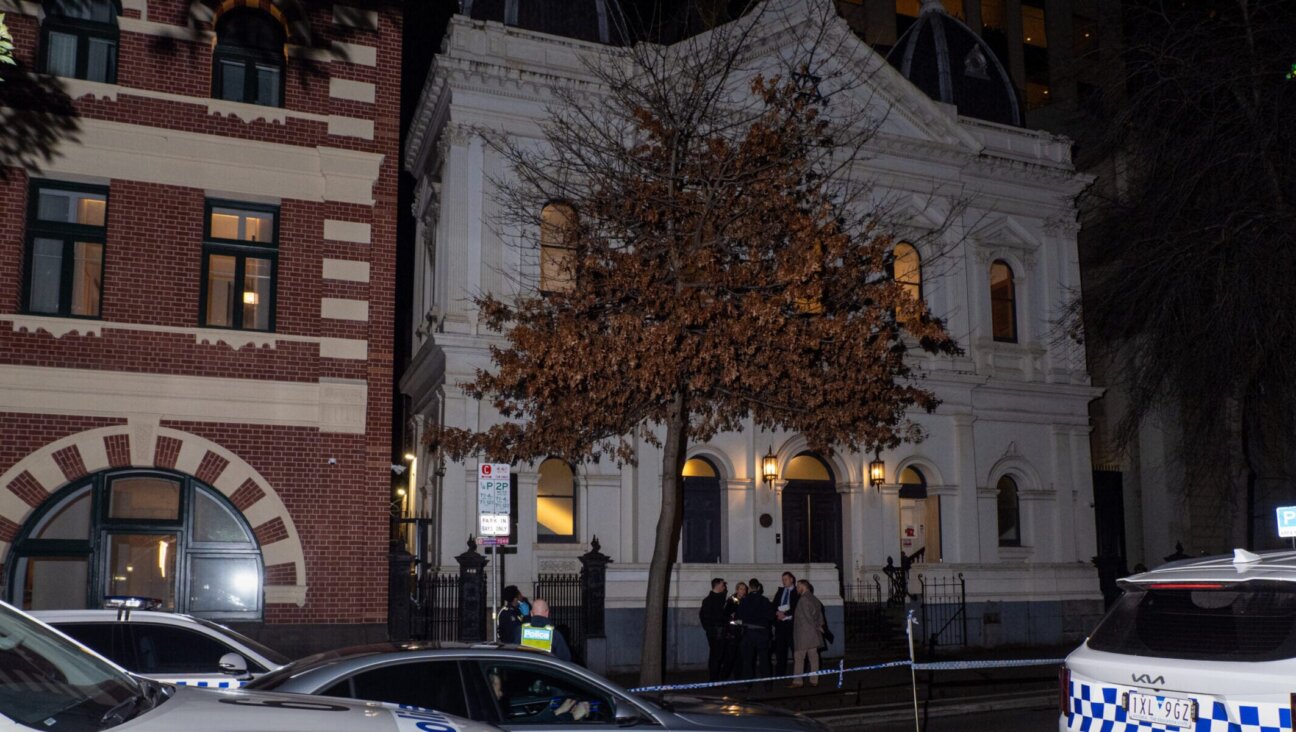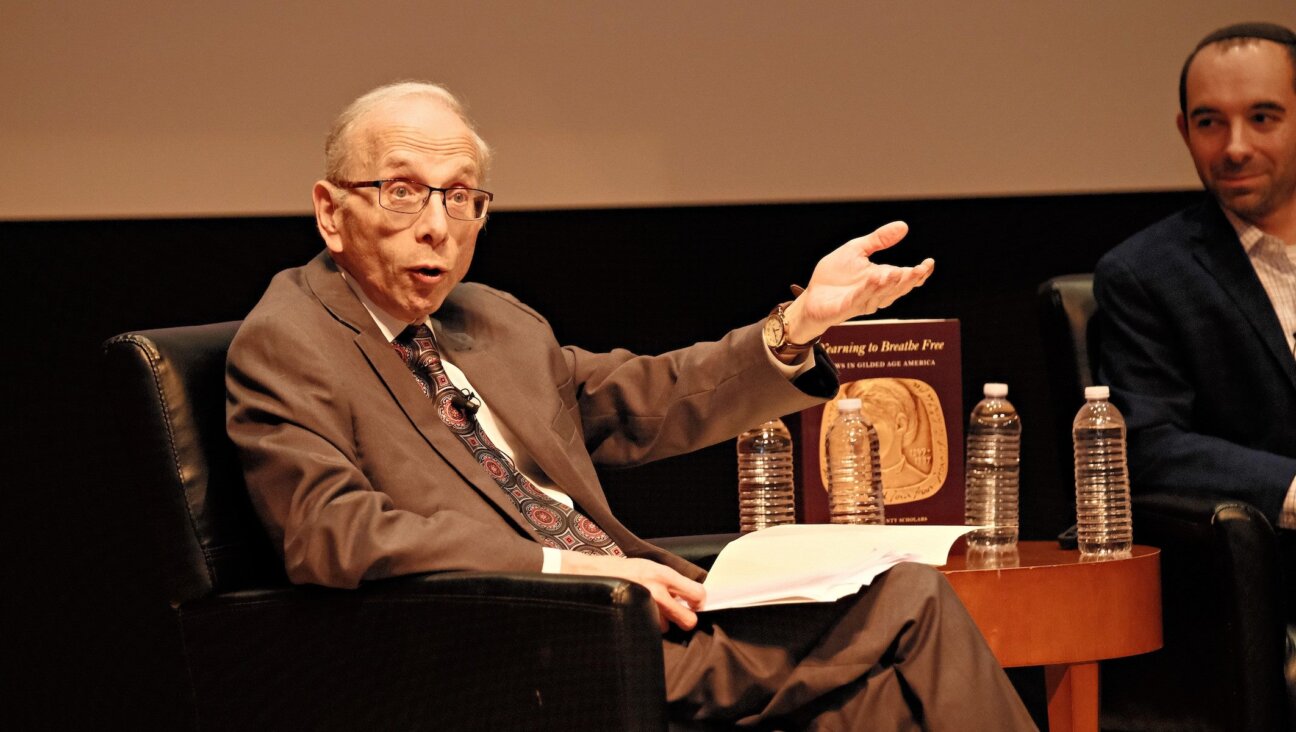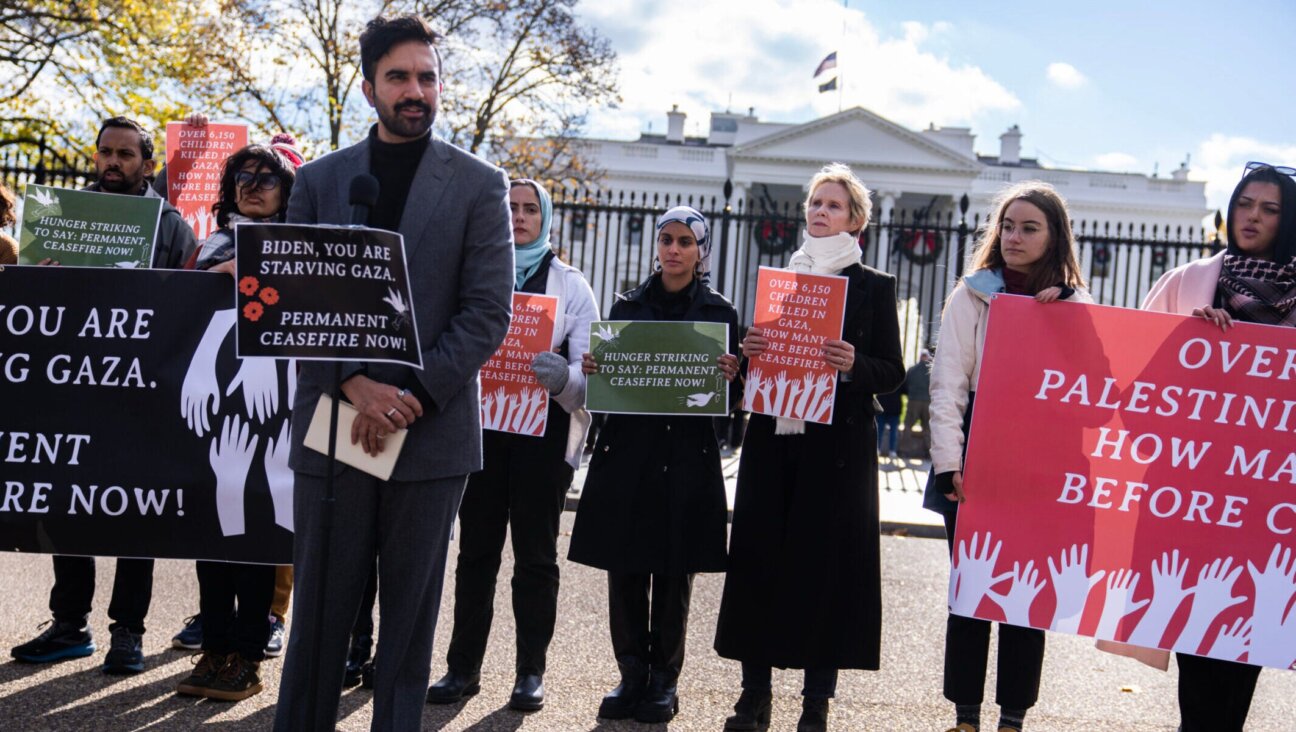Hard-Nosed Campus Group Softens Tactics

Image by courtesy of david project

Campus Correction: The David Project gained notoriety for its hardline pro-Israel advocacy on college campuses, which often focused on attacking perceived pro-Palestinian institutions. It is changing tack, in favor of a more positive approach. Image by courtesy of david project
Universities are, for the most part, not hostile environments for Jewish students. Large campus events in support of Israel can be counterproductive. And using federal civil rights laws to protect Jewish students from anti-Israel activity could create a backlash against them.
These are just a few of the surprising highlights in a new report from an organization previously known for its take-no-prisoners style of Israel advocacy.
The Boston-based David Project, one of a handful of Jewish groups devoted to campus activism on Israel, made a name for itself eight years ago when it produced the film “Columbia Unbecoming,” alleging that Columbia University was a hotbed of anti-Israel and even anti-Semitic activity. But now the group seems to have distanced itself from its aggressive approach. The David Project’s new agenda focuses on selling Israel rather than on reaming out its critics.
This new posture has been welcomed by groups such as Hillel, the national campus network of Jewish student centers. But The David Project’s original backers deride this softer strategy as a misguided approach for addressing the situation faced by pro-Israel Jewish students on campus.
“Sometimes, challenging Israel’s detractors is warranted,” said Executive Director David Bernstein, who took the helm in 2010. “But we also know that the goal of The David Project is to reach and work with as many Jewish students and professionals as possible. That takes a thoughtful approach to Israel.”
The David Project’s report, released on February 8, paints a nuanced picture of the challenges Israel faces on campus. Called “A Burning Campus? Rethinking Israel Advocacy at America’s Universities and Colleges,” the paper claims that universities are host to the worst anti-Israel behavior in America, even as the American public, more broadly, is supportive of the Jewish state.
But veering from the Israel advocacy world’s frequent position, the report makes a strong distinction between “anti-Israelism” and anti-Semitism on campus. Conflating the two does not “jive” with the experience of Jewish students who feel largely comfortable in American universities, the report warns. The problem, it stresses, is not anti-Semitism; it’s a “drip-drip negativity” about Israel that, Bernstein said, threatens to erode support over the long term.
“The chief concern, therefore, is not the welfare of Jewish students,” the report states, “but that a pervasively negative atmosphere will affect the long-term thinking of current college students, negatively affecting strong bipartisan support for Israel.”
The way the new David Project sees it, a subtle problem deserves a subtle response. Rather than counter anti-Israel speech on campus with flashy events featuring big-name speakers, the group proposes a kind of pro-Israel diplomacy in which students “map” their campuses to find and influence thought leaders — namely, other students and faculty members.
“There is a serious cost that we pay in both giving [Israel’s critics] more attention than they deserve and in sounding shrill ourselves,” Bernstein said.
The David Project’s original founders are appalled by this approach.
“Unless you expose and humiliate and taunt and legally threaten and politically challenge the use of the podium as propaganda, and unless you fight the cultural relativist paradigm where no one is allowed to say ‘Hey, that’s a lie’ — unless you bring this out in a public way for the public to see, then you have a problem,” said Charles Jacobs, one of the group’s two co-founders. Jacobs, who left the organization in 2008 to start Americans for Peace and Tolerance, a group focused on radical Islam, said that The David Project’s new strategy leaves a gaping hole in the aggressive Israel advocacy world.
This view was echoed by Avi Goldwasser, the group’s other co-founder, who produced “Columbia Unbecoming.” “They do a good job of educating students, and they feel their strength is in diplomacy,” said Goldwasser, who left the organization in 2005. “Diplomacy by itself can never win. It is only effective in combination with other, more aggressive approaches.”
Bernstein, The David Project’s executive director, countered that his organization was, in fact, filling another void on campus. “Most organizations have been engaging in name and shame,” he said, “but very few have been doing proactive relationship-building on campus.”
The David Project’s gentler tone reflects the change in leadership at the organization. Founded in 2002, The David Project was the brainchild of Jacobs, who had formerly worked at the right-wing media watchdog group Committee for Accuracy in Middle East Reporting. Jacobs saw The David Project as an answer to the mainstream Jewish community’s reluctance to respond aggressively to what he calls the “Muslim-left” anti-Israel alliance on campus. While Israel’s detractors portrayed the Palestinians as “David” and the Israelis as “Goliath,” Jacobs sought to flip this notion on its head. Zooming out, he said, the greater Arab world is the “Goliath” and Israel is “David”: hence, The David Project.
In 2004, The David Project stirred up controversy with its production of “Columbia Unbecoming.” The 40-minute film featured testimony from Jewish students at Columbia University who claimed they felt intimidated by heated criticism of Israel from teachers in the school’s Middle East and Asian Languages and Cultures Department. Columbia created an ad-hoc grievance committee in response to the film, which found no evidence of anti-Semitic statements made by faculty. One professor, Joseph Massad, was found, in a specific episode, to have “exceeded commonly accepted bounds” of behavior. Massad denied the incident had taken place in news reports at the time.
Shortly after, The David Project turned its sights on the Islamic Society of Boston, which was planning a mosque in the Roxbury neighborhood. The mosque’s developers filed a defamation suit against The David Project after the group charged the project had terrorist ties. Ultimately, the society dropped its suit.
Still, many in the Jewish community wondered what a pro-Israel campus advocacy group was doing taking on a mosque. In 2008, Jacobs and The David Project parted ways, and Jacobs initiated a new multifaith organization to confront Islamic radicalism. “I wanted to leave The David Project to do its good work unencumbered,” Jacobs said. “It can’t do everything.”
Jacobs’s stated reasons for leaving were corroborated by individuals involved with The David Project who said that the organization wanted to stick to its mission as a campus education and advocacy group.
In 2010 The David Project hired Bernstein, former Washington director of the American Jewish Committee. Bernstein has set his sights on mainstreaming the organization, commissioning Rabinowitz/Dorf Communications — which represents left-of-center groups, like J Street and mainstream groups, like Hadassah and the United Synagogue of Conservative Judaism — to tout his new report about Israel on campus.
According to the group’s tax forms, the number of employees at the organization has ranged from 20 in 2007, Jacobs’s last full year at the organization, to 35 in 2010, the most recent year for which data are available. There was a spike to 61 employees in 2008 that David Project officials say was a reporting error. Public support dropped from $4.6 million in 2007 to $3.8 million in 2010.
Bernstein’s arrival at the organization was a welcome sign for Hillel, which now collaborates with The David Project after having a policy of “live and let live” with the group during Jacobs’s administration.
“The David Project is trying to ensure that their content and messaging will be accessible for this generation,” said Wayne Firestone, Hillel’s national director.
Contact Naomi Zeveloff at [email protected] or on Twitter @naomizeveloff
























